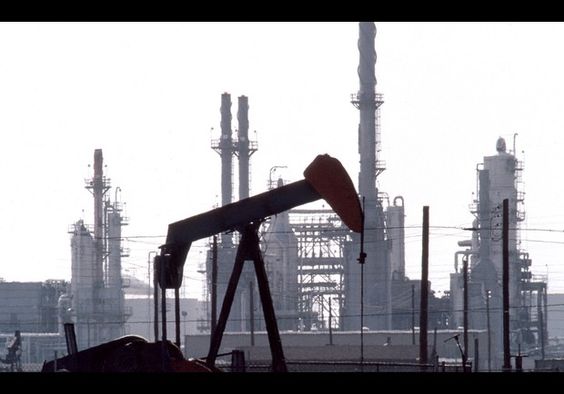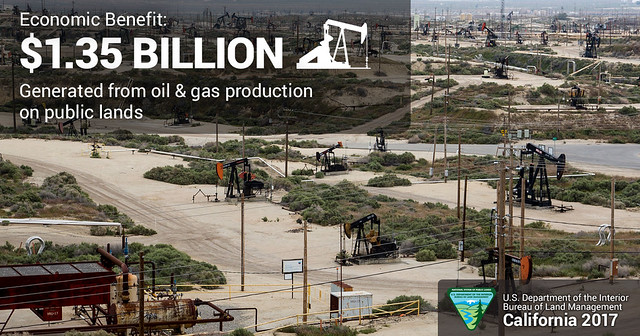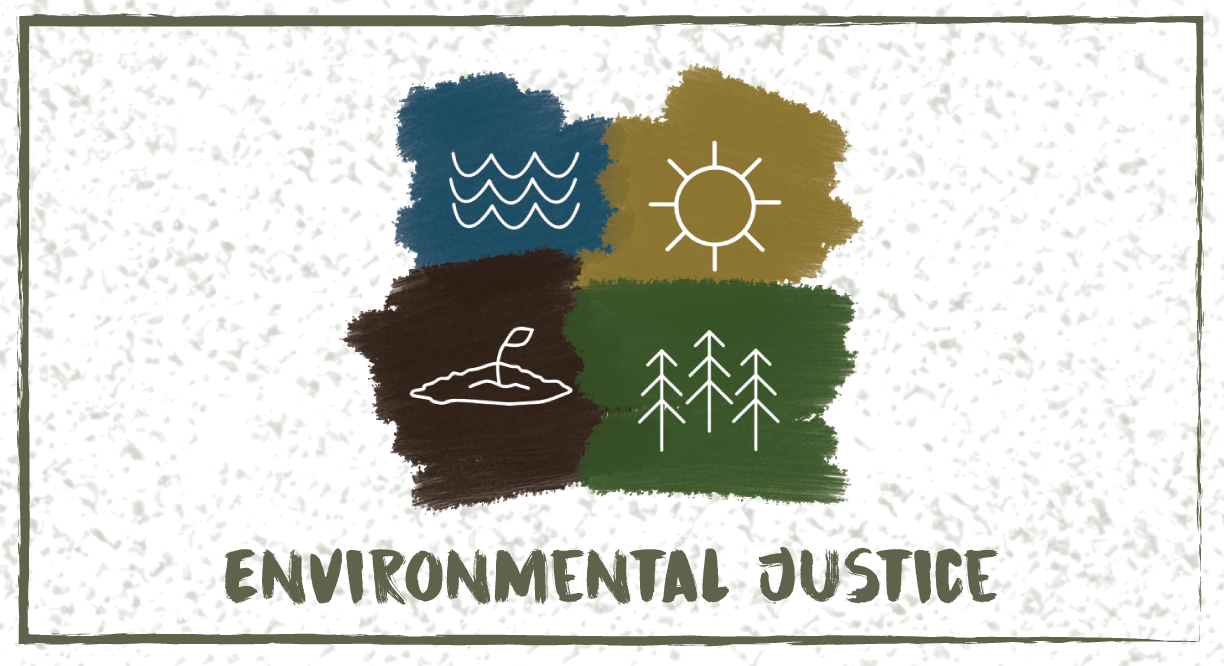
Bakersfield Oil Rig (Photo: Pinterest)
California Fuel Security is Needlessly Vulnerable
Wouldn’t now be an appropriate time to examine the supply chains we rely on for things we need?
By Micah Eckels, March 20, 2020 2:12 am
Empty shelves have recently greeted many shoppers due to panic surrounding the COVID-19 virus. Staples such as toilet paper, bread, and potatoes are temporarily gone from many stores.
Wouldn’t now be an appropriate time to examine the supply chains we rely on for things we need and take the necessary actions to ensure our supplies of vital goods are secure?
California is fortunate to be the leading agricultural producer in a nation that’s a net exporter of food. We can expect food shortages to be temporary because we can count on our local farmers to replenish supplies. Toilet paper shortages also will be temporary because this is another product in which we are self reliant, due to local producers.
We are fortunate our fuel supply has not been impacted by this crisis and hopefully will not be. However, the pandemic has indeed disrupted global trade. Around the world, there are numerous examples of factories closing or cutting back production.
This serves as an important reminder our fuel and energy security is extremely important. Without fuel, our economy would grind to a halt. People wouldn’t be able to get to work, the trucks that supply our stores may not be able to run, and rationing could be imposed.
California is currently vulnerable to such a crisis. Oil production has dropped over 40 percent since 2000. Today, only 30 percent of the 1.5 million barrels we consume every day is produced locally and 59 percent is sourced from foreign countries. This reliance on imports costs us all over $40 million a day, when calculated at $50/barrel, which is sent overseas.
Nearly half of the foreign oil we import comes to us by way of the Strait of Hormuz, a narrow waterway in the Middle East that is one of the most unstable trade routes in the world.
It doesn’t have to be this way. In many other parts of the country, American oil and gas production is at record levels. In Texas, consumers pay over 40 percent less at the pump than we do here in California, as a result of both lower gas taxes and robust local production.
This energy boom is largely due to advanced oil extraction technology, such as hydraulic fracturing, or “fracking.” However, in California, due to a decision by Governor Newsom in November of last year, advanced oil extraction is subject to a moratorium.
The moratorium is a mistake that will further harm our oil and gas production and make us even less self reliant. The Governor is right to be concerned with protecting the environment, but we can protect the environment while also looking out for fuel consumers and our energy security.
Numerous studies indicate advanced oil extraction technology is safe, and California’s stringent regulations ensure California oil producers operate under some of the highest standards in the world.
One day, electric vehicles may be ubiquitous and then we will no longer need as much oil — although we will still need petroleum for numerous products ranging from contact lenses to medicines to toys, sweaters, and garden hoses — but until then, let’s do the sensible thing and lift the oil ban.
Boosting local production to meet our needs ensures an unanticipated global event will not needlessly disrupt our economy.
- California Fuel Security is Needlessly Vulnerable - March 20, 2020




Great article.
Please consider other articles on energy security.
How secure is our electricity from High altitude Electro Magnetic Pulse, or solar storm (like or worse than the 1859 Carrington Event), or coordinated attack against several key components of the grid? How will we have enough electricity in non-wind or non-sunshine hours?
Why not more pumped storage like PG&E’s Helms or Wishon reservoirs while we wait for sufficient batteries (which have their own environmental issues)? Why can’t we do mini-nukes like France or the US Military? Are those not safe enough in reality? (I understand real issues and safety concerns exist, but running out of power for 3+ days during a heat wave is also a real concern.)
Worse than the 1859 Carrington event: Evidence exists that a much larger event happened some 9,800 years ago, ending the last ice age, raising earth’s temperature 20 degrees in a week, melting ice, raising seas which overflowed the Bosphorus Strait, flooding the Black Sea (leading to the flood stories of the Epic of Gilgamesh and biblical Great Flood).